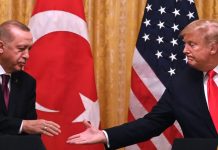Malaysian PM Mahathir Mohamad signalled a tough line on the EU, affirming that if the EU keeps on vilifying Malaysia’s palm oil products or forces restrictions on them, Malaysia would consider buying fighter jets from China or other countries instead of the EU. EurAsian Times looks at a report from the Global Times.
Dassault Rafale or Boeing F/A-18 – Who Will Get The Billion Dollar Indian Fighter Jet Deal?
While many experts believe that Malaysian PM is bargaining with the EU, with China unwittingly being the bargaining chip. Although there have always been differences between the EU and Malaysia, a major palm oil producer, data shows that until 2018, Malaysia hadn’t had any dispute with the EU in the trade of palm oil products. For instance, in 2018, Malaysia reached a consensus with the EU on drafting a policy on indirect land use change so as to ensure that Malaysian palm oil products would not be affected in the EU market.
However, in January, the EU suddenly changed its policy on palm oil products as it believes that the development of the palm oil industry contributes to deforestation and causes the destruction of wildlife habitat and greenhouse gas emissions. It also plans to propose to the WTO to gradually phase out palm oil-based biofuels, which has triggered a strong backlash from Malaysia. From January to March, the EU’s “ban” on palm oil has triggered strong protests from the Malaysian government, mainly due to the special status of palm oil in the country.
First of all, Malaysia is the world’s second largest palm oil producing country after Indonesia, with palm oil products being its most important primary products, while the EU is the No.2 export market for Malaysian palm oil products. If the EU really bans palm oil, Malaysia’s trade with the EU, as well as its palm oil industry, will undoubtedly suffer a heavy blow.
Second, the palm oil industry is also a pillar industry for agricultural development in Malaysia, involving hundreds of thousands of jobs. Statistics show that the planting area of palm trees in Malaysia accounts for more than half of the country’s total cultivated land. In 2017, the planting area of palm trees stood at 5.81 million hectares.
Indian HAL Tejas Impresses in LIMA Air Show in Malaysia, Video Goes Viral: Watch Now
As to employment related to palm tree plantations and the related industrial chain, Malaysia’s Foreign Affairs Minister Datuk Saifuddin Abdullah once said that the impact of the EU’s palm oil ban would be devastating for the 650,000 smallholders and two million Malaysians who are highly dependent on the industry for their livelihood.
Last but not least, due to the special role of agricultural development and farmers in Malaysian politics, the EU’s policy and action in banning palm oil has fundamentally hit a nerve with Mahathir and other politicians.
On one hand, there are millions of Malaysians working on palm tree plantations and relevant industries, who are important voters the ruling and the opposition parties need to win elections. On the other hand, palm trees are widely distributed and cultivated in rural areas in eastern and western Malaysia, so the EU policy would seriously affect rural development in the country.
In short, the EU’s policy and action on palm oil are the fire that has ignited Mahathir’s anger. At present, his threatening statement to the EU will not just talk. In particular, his mention of the purchase of fighter jets from other countries such as China is not just a verbal threat.
Mahathir has just watched the air show of Chinese jets in Pakistan and was very impressed. Of course, it would be a good thing if Malaysia were to buy Chinese fighter jets. But no matter if it does or not, it has given free advertising for Chinese fighter jets.
Originally Published in the Global Times
More News at EurAsian Times
- Indian Military Base in Vietnam To Protect Hanoi’s Territorial Interest
- Indian Military Base in Indonesia can Strangle China at the Strait of Malacca
- Saudi Money, US Weapons, Israeli Intelligence Fuelling Arab NATO – Iran
- Will Ayni Airbase in Tajikistan Become India’s 1st Overseas Military Base?
- Indonesia Opens Another Military Base at Natuna Islands To Counter Aggressive China




